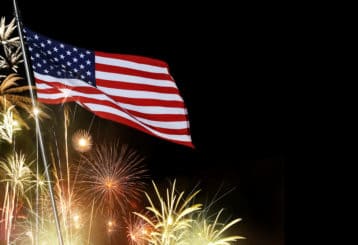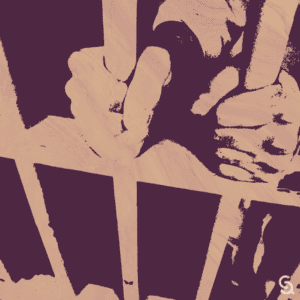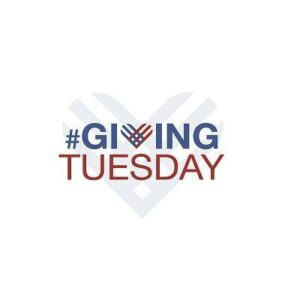
Pro-American jargon simply doesn’t represent what should be the humble attitude of Jesus followers.
As I logged onto Facebook on July 4th, I saw the predictable and obligatory independence posts clogging my news feed. Offensive images of the American flag with scripture scrawled about, countless posts about how “great” we are, and a host of other pro-American jargon that simply doesn’t represent what should be the humble attitude of Jesus followers.
July 4th used to be one of my favorite holidays, but now, it is a celebration that deeply troubles me. Here’s why:
The mere word “independence” insinuates that everyone in our country is actually free and equal under the law. This, however, is not—nor has it ever been—the case. America has benefited from the sin of slavery throughout her entire history, including today. Today, we still enslave people both directly through forms of human trafficking and modern slavery and also via institutionalized, cyclical poverty that entraps victims with little hope of ever attaining true “independence.” And we conveniently benefit from slave labor in other countries—far enough away so that we don’t see it, yet convenient enough to keep our favorite products at low prices. We aren’t all independent. Not everyone is free. Not everyone has equal rights.
We aren’t all independent. Not everyone is free. Not everyone has equal rights.
Additionally, when we celebrate July 4th, we are celebrating a day when two supposedly “Christian” nations chose to use war and violence to settle their differences. This violent choice, on both sides, was made in spite of the fact that central to the way and example of Jesus is a radical love and forgiveness of one’s enemies that forbids the use of violence. The way of Jesus bids us to put down our weapons and instead pick up a cross.
The fact that we fought, destroyed, killed, and did so under the false pretense that somehow God was supportive of our violent choices should be a fact we deeply repent of—not one that we celebrate as our nonviolent Savior watches on.
Finally, as a Christian who is desperately trying to follow the teachings of Jesus, I am deeply bothered by American nationalism. It’s not that pride in one’s country bothers me, it’s how Americans do it that bothers me. We don’t just celebrate the fact that we love our country—we have to take it to the maximum and celebrate that “we are the greatest country in history” and that we’re the “hope of the world.” In American Christianity, we have allowed our faith to assimilate with a nationalistic culture like the slices of bread in a grilled cheese sandwich. As a result, we have forgotten that as Jesus followers, we are sojourners—citizens of another place—and that our loyalty must be to the Kingdom of God and not to the Empires of Man. Instead, we somehow have been lulled into a belief that we can be for both “God and Country” when in truth, the way of God often conflicts with the values of our country.
The ways of God are different from ours.
As Christian Americans, we say, “We’re number one!” yet scripture tells us, “Don’t think more highly of yourselves than you ought,” and, “Consider others as more important than yourself.”
The way of Jesus isn’t the way of our culture. It never has been.
American culture says: “Blessed are the talented. Blessed are the rich. Blessed is the country with the most powerful military…” but in the backwards Kingdom of God, the truth is that “blessed are the meek… blessed are the poor… blessed are the peacemakers…”
Believe it or not, Jesus himself confronted this same issue of nationalistic identity, which detracted from the message of God. In Luke 4, Jesus gives his first sermon—unfortunately, Israelis expected that their Messiah would affirm their nationalistic identity, which is similar to ours. They thought they were God’s “chosen people,” that they were “number 1″, and that the story was all about them. Yet Jesus began his ministry by indicating that the Kingdom of God is available to everyone, not just Israel.
That it’s for the poor.
The blind.
The slave.
Those outside the circle.
And so they tried to kill him. Nationalistic identity, when given too high a priority, will cause people to do that—as we see all throughout history, including our own.
Don’t get me wrong, I’m happy to live in this country, and I served it.
Don’t get me wrong, I’m going to continue celebrating the Fourth of July, but not our violent history, my identity as an American, or the falsehood that we are the “best.”
Instead, I’ll quietly spend time with friends, and love them—those who are like me and those who aren’t.
Those who are inside the circle, and those who seem to be outside.
I will love them—simply, authentically, and quietly, as I remember that I am a citizen of another place.
A place whose values are opposite to the values of the world I live in.
A place that blesses the weak, the marginalized, and those on the outside.
A place that tosses out the invited guests, but invites the rejected and forgotten to have a seat at the table.
A place that is different from America, or anywhere else.
I’m a citizen of this other place, and that is where my loyalty resides.
 Benjamin L. Corey is a cultural anthropologist and public theologian. He is a two-time graduate of Gordon-Conwell (theology & missiology), received his Doctor of Intercultural Studies (DIS) from Fuller, and is the author of Unafraid: Moving Beyond Fear-Based Faith. Follow him on Facebook, Twitter, and Instagram.
Benjamin L. Corey is a cultural anthropologist and public theologian. He is a two-time graduate of Gordon-Conwell (theology & missiology), received his Doctor of Intercultural Studies (DIS) from Fuller, and is the author of Unafraid: Moving Beyond Fear-Based Faith. Follow him on Facebook, Twitter, and Instagram.



One Response
This is an outstanding essay. I will be sharing it on Facebook & Twitter. Thanks.